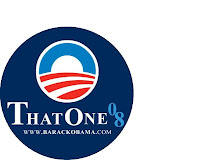 Before you read this, think about how many Republicans receiving unemployment benefits voted for the Rethugs in the midterms. I'll bet you the majority of them did simply because a Black man is the POTUS!
Before you read this, think about how many Republicans receiving unemployment benefits voted for the Rethugs in the midterms. I'll bet you the majority of them did simply because a Black man is the POTUS!Senate Republicans Block Middle Class Tax Cut
Republicans have threatened to block all Democratic legislation until the tax cut issue is resolved, pressing them to cave before time runs out on other key initiatives like the ratification of the START treaty and the repeal of Don't Ask, Don't Tell.
Sens. Jim Webb (D-VA), Ben Nelson (D-NE), Joe Manchin (D-WV), Russ Feingold (D-WI), and Joe Lieberman (I-CT) voted with the Republicans on the former plan. The vote was 53-36. Jay Rockefeller (D-WV), Dick Durbin (D-IL), Tom Harkin (D-IA) Lieberman and Feingold voted with the GOP on the second. That vote was 53-37, and reflected progressives' unease with redefining the middle class at the $1,000,000 income threshold.
Senate Republicans blocked legislation Saturday to let upper-income tax cuts expire on Jan. 1, a showdown scripted by Democrats eager to showcase GOP lawmakers as defenders of millionaires.
"Do we want to extend those tax breaks for millionaires and billionaires at a time of huge deficits. I would argue vociferously we shouldn't," said Sen. Chuck Schumer, D-N.Y., shortly before the votes.
Republicans countered that no taxes should be raised at a time the economy is recovering from a recession. "It is the most astounding theory I have ever seen, raise taxes to create jobs," said Sen. John Thune of South Dakota.
Both measures would have extended expiring cuts for the middle class.
Ironically, the votes were widely seen as a prelude to a possible agreement next week between the White House and congressional leaders on legislation that would avert tax increases at all income levels, as Republicans want.
Any agreement is also expected to extend jobless benefits for the long-term unemployed, a Democratic priority, and possibly renew tax breaks the White House wants for college students, companies that hire the unemployed and lower- and middle-class wage earners.
The Senate took the two votes on bills that would have permitted tax cuts to remain in effect at most incomes.
A proposal to let tax rates rise on Jan. 1 on incomes over $200,000 for individuals and $250,000 for couples fell on a vote of 53-36, seven short of the 60 needed to advance.
An alternative advanced by Schumer and others -- but opposed by the White House -- would have let rates rise on incomes over $1 million. The vote was 53-37, also seven short of the 60 needed.
Schumer supplied the political context. "I'm going to be here for the next year, next two years, to remind my colleagues that they were willing to increase the deficit $300 billion to give tax breaks to people who have income over a million dollars," he said in a reference to the 2012 elections.
The 72 super PACs, all formed this year, together spent $83.7 million on the election. The figures provide the best indication yet of the impact of recent Supreme Court decisions that opened the door for wealthy individuals and corporations to give unlimited contributions.
"Super PACs provide a means for the super wealthy to have even more influence and an even greater voice in the political process," said Meredith McGehee, a lobbyist for the Campaign Legal Center, which advocates for tighter regulation of money in politics.
Crossroads, which was founded with the support of Bush administration adviser Karl Rove, raised $70 million, much of it used to support 10 Republican Senate candidates and 30 Republican House candidates.
John Childs, founder of Boston-based J.W. Childs Associates, gave $650,000 to the Club for Growth, an anti-tax group. Dalea Partners, a private-equity firm based in Oklahoma City, gave $250,000 to the First Amendment Alliance, which spent money opposing five Democratic Senate candidates, including incumbents Harry M. Reid (Nev.) and Michael Bennet (Colo.).
Senate Republicans and a handful of Democrats Saturday defeated a bill to reauthorize unemployment benefits for the long-term jobless and a plethora of tax provisions for the middle class not because of the bill's trillion-dollar deficit impact, but because it did not include tax cuts for the rich.
"In economic times like these, 9.8 percent unemployment, you should not raise taxes on anyone," Sen. John Barrasso (R-Wyo.) told HuffPost.
After Saturday's vote, it seems the only way Democrats will be able to overcome Republican opposition to the benefits will be by attaching them to a reauthorization of tax cuts for the rich.
Sen. Bob Corker (R-Tenn.) said after the vote that he expected a tax cut deal to be reached by Thursday. Corker declined to say whether he thought unemployment would be included in the deal, as did Senate Minority Leader Mitch McConnell (R-Ky.).
Senate Republicans Defeat Reauthorization Of Jobless Aid, Tax Cuts
First Posted: 12- 4-10 11:42 AM | Updated: 12- 4-10 07:39 PM
- Senate Republicans and a handful of Democrats Saturday defeated a bill to reauthorize unemployment benefits for the long-term jobless and a plethora of tax provisions for the middle class not because of the bill's trillion-dollar deficit impact, but because it did not include tax cuts for the rich.
"In economic times like these, 9.8 percent unemployment, you should not raise taxes on anyone," Sen. John Barrasso (R-Wyo.) told HuffPost.
Two bills were defeated. By a vote of 53-36, seven short of the 60 needed to break a filibuster, the Senate rejected a measure by Sen. Max Baucus (D-Mont.) that would have preserved Bush era tax cuts for lower- and middle-income taxpayers, but would have allowed cuts for people earning more than $200,000 a year to expire. Democrats Joe Manchin (W.Va.), Ben Nelson (Neb.), Jim Webb (Va.), Russ Feingold (Wisc.) and Independent Democrat Joe Lieberman (Conn.) joined Republicans in voting nay. The Senate also rejected a bill by Sen. Chuck Schumer (D-N.Y.) that would have extended all the cuts, but not for anybody making more than $1 million.
The Baucus bill would have preserved Emergency Unemployment Compensation and Extended Benefits Programs created in 2008 as a customary response to rising unemployment. The programs provide up to 73 weeks of federally-funded benefits for when layoff victims exhaust the standard 26 weeks of state-funded aid. The programs lapsed last week, threatening a holiday cutoff for two million unemployed.
After Saturday's vote, it seems the only way Democrats will be able to overcome Republican opposition to the benefits will be by attaching them to a reauthorization of tax cuts for the rich.
Sen. Bob Corker (R-Tenn.) said after the vote that he expected a tax cut deal to be reached by Thursday.
Sen. Schumer said at a press conference that some Democrats would be willing to drag the tax debate on into January. "There are lots of people in our caucus who do have that appetite, there are some who don't. We'll have to see what happens."
Corker declined to say whether he thought unemployment would be included in the deal, as did Senate Minority Leader Mitch McConnell (R-Ky.).
Republicans and conservative Democrats have opposed reauthorizing the benefits without offsetting their deficit impact by cutting spending from elsewhere in the budget. But those same lawmakers have not insisted that tax cuts for the rich, estimated to cost nearly $700 billion over 10 years, be offset in any way. A yearlong reauthorization of unemployment benefits would cost roughly $60 billion.
During debate on the Senate floor before the vote, Schumer asked Sen. Chuck Grassley (R-Iowa) about Republicans' different positions on deficit reduction.
What Else Would $60 Billion Buy?
By DAVID LEONHARDT
$60 Billion: The approximate amount that extending the Bush tax cuts on income above $250,000 a year — which Congress seems on the verge of doing — will cost a year, in inflation-adjusted terms. On average, the affluent households that benefit from these cuts will save $25,000 annually. What else might that $60 billion a year buy?
•As much deficit reduction as the elimination of earmarks, President Obama’s proposed federal pay freeze, a 10 percent cut in the federal work force and a 50 percent cut in foreign aid — combined.
•A tripling of federal funding for medical research.
•Universal preschool for 3- and 4-year-olds, with relatively small class sizes.
•A much larger troop surge in Afghanistan, raising spending by 60 percent from current levels.
•A national infrastructure program to repair and upgrade roads, bridges, mass transit, water systems and levees.
•A 15 percent cut in corporate taxes.
•Twice as much money for clean-energy research as suggested by a recent bipartisan plan.
•Free college, including room and board, for about half of all full-time students, at both four- and two-year colleges.
•A $500 tax cut for all households.
Blowing Billions on War While American Workers Go Under
When asked by USA Today's pollsters last week, sixty-eight percent of Americans said we worry that the cost of the Afghanistan War hurts our ability to fix problems here in the U.S. This week, we learned just how right we were about that. Friday's terrible jobs report shows that a crushing 9.8 percent of us are unemployed. And, millions of us are about to lose our lifeline because Congress refuses to extend unemployment insurance benefits. We're spending $2 billion per week -- per week! -- in Afghanistan while millions of people face going hungry during the holidays.
Do our elected officials not get it? We're drowning out here, and the administration is throwing money that could put Americans back to work at a failed war on the other side of the planet. In fact, that's where the president was when the jobs report came out this morning -- in Afghanistan, talking about "progress" again.
Here's one way to think about it: just one Hellfire missile fired in Afghanistan costs $58,000.00. That's enough money to provide unemployment insurance benefits for almost 4 people for a full year. For the full cost of the war for one week, about $2 billion, we could extend unemployment insurance for about 6.7 million people for a week. What are the 2 million people who are about to lose their unemployment insurance benefits supposed to think when they hear senators yelling about the cost of keeping them from going hungry, while at the same time those senators shove enough money to keep the benefits going into that money pit of a war?
Here are a few myths, half-truths and short-hand distortions that have marred the debate:
_ Under the Obama plan, taxes will increase for families making more than $250,000.
Wrong. Actually, a family could make a lot more and still not face higher taxes. Obama wants to raise the top two brackets from 33 percent to 36 percent and from 35 percent to 39.6 percent. The first of the two – 36 percent – is widely assumed to kick in at $250,000. Obama says that himself.
But that's not right. The higher rate would apply to families with $232,000 or more of taxable income, or what's left after personal exemptions and deductions have been subtracted from income. Deductions can be sizable, especially for wealthy people. Think state and local taxes, mortgage interest and charitable contributions. The result is that a family making $300,000 or even more could have taxable income of less than $232,000.
"A lot of people making more than $250,000 won't be paying higher taxes," says Clint Stretch, a managing principal of Deloitte Tax.
























































